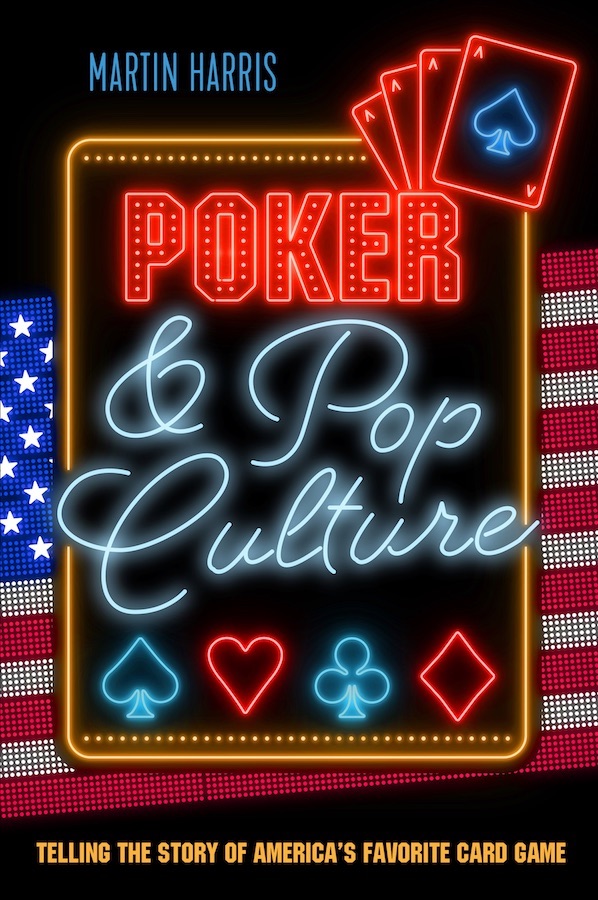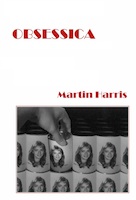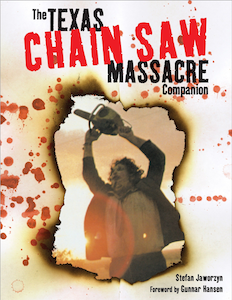The President Who Doesn’t Play Poker
Henry: “Roulette? Craps?”
J.J.: “He won’t touch ‘em. The croupier at Gilman’s says he never plays anything he can’t win.”
Henry: “Sports?”
J.J.: “Mmm... likes to be seen with fighters sometimes, but he doesn’t go to the fight or bet on them.”
Henry: “Does he do anything when he’s not alone?
J.J.: “Poker. And he cheats. Pretty good at it, too.”
Legislative machinations typically are not that interesting to follow, but last week’s unsuccessful attempt by lawmakers to “repeal and replace” the Affordable Care Act with a hastily-assembled, much-derided alternative was something to witness.
For much of the latter part of the week it appeared the president was fully prepared to force a House vote on the matter, one doomed to fail and result in a spectacular loss both to the Republican party and to the president personally. Right up until late Friday afternoon the president appeared to be in full-blown Leeroy-Jenkins, let’s-do-this-no-matter-what mode before the vote was scuttled just before the finish.
Canceling the vote hasn’t stopped most commentary from employing words like “defeat,” “failure,” “humiliation,” and the like, but it does allow the president a tiny, cramped space from which to describe the episode as something other than a loss. Not that he would ever describe himself losing anything accurately, but in this case he technically “folded” before the showdown, enabling him to continue the charade of self-characterization that he’s never suffered anything resembling losing.
In this way, the president is a lot like the crime boss Doyle Lonnegan from The Sting. He doesn’t like playing games he can lose.
I’ve been known from time to time to write about U.S. presidents playing poker. I also always enjoy reading about the subject, and so now after many years of pursuing this particular niche of poker-slash-political history, I’ve become familiar with most of the stories -- true and apocryphal -- having to do with presidents’ card-playing habits.
During the 2016 presidential campaign there were a number of stories about how the candidates choices and strategy resembled the game of poker. This wasn’t because the candidates were themselves poker players, but rather because all political campaigns and elections resemble poker games. Here’s a PokerNews article I did just before the election that compiled a number of those analogies.
A short while ago I got curious about whether or not the one who won the election was ever actually a poker player. After all, he did own all of those the hotels and casinos and was so conspicuous in Atlantic City for so long, right up until last month, really, when the last sign with his name was taken down from the last of his shuttered properties.
I don’t have a definitive answer, but I thought I’d share three interesting articles related to the inquiry, anyway. Together they do appear to contribute to the argument that to our current president -- despite all the poker-strategy-talk that will sometimes come up in commentaries about him -- isn’t much of a poker player at all.
Talking Poker in BLUFF (2004)
The most recent of the three articles is from December 2004, one that appeared in BLUFF magazine and can be accessed in the archive of the now-defunct publication. Then-editor Michael Caselli interviewed the man who is now president, primarily focusing on the Taj Mahal and its once-famed poker room (immortalized in the 1998 film Rounders).
“Certain things go in and out of vogue,” the famous businessman and TV star observed. “Poker gains players by exposure.”
Speaking right in the heart of the poker boom, he added that “Poker and The Apprentice both are pop culture, both equally cool, except for the major player in The Apprentice.”
Caselli follows that quote wondering if the Taj owner was making a self-deprecating joke, but his interviewee clarifies “Jokes are a waste of time.” (I actually wonder if he wasn’t meaning to avoid suggesting his show -- and he himself -- was only merely as cool as poker.)
“Is [he] a poker player?” next asks Caselli. “Unfortunately he doesn’t have too much time for the game these days.” Caselli says he “knows poker” and “likes the game,” but that “his manicured hands don’t get to hold the Hold’em cards all that often.” (No reference in the article to the size of those manicured hands.)
The article ends with a somewhat convoluted question asking which six people in history The Apprentice star would invite to a poker game. “Winston Churchill, Napoleon, Abraham Lincoln, Robert Moses [the NYC planner], Leonardo da Vinci and Amadeus Mozart,” is the reply.
Then, after being pressed, he added “Would I win...? Most likely.”
The USPS and Poker at the Taj (1997)
Going back a few years earlier, there’s an interview conducted by Michael Konik for the March/April 1997 issue of Cigar Aficionado that sheds a little more light on the non-poker playing of our current president.
The interview took place late the previous year during the inaugural U.S. Poker Championship at the Taj Mahal. In fact most of the article focuses on the USPS series and in particular the Main Event, a $7,500+$100 affair that drew 100 entries and saw Ken “Skyhawk” Flaton outlast runner-up Surinder Sunar and third-place finisher Phil Hellmuth to win a $500,000 first prize. That was more than half the $850,000 prize pool thanks to a steep payout at the end, not atypical of tournaments back then. (You can watch ESPN's coverage of the final table of that event online here.)
Konik focuses on the series’ overall success -- more than $4 million in prize money and 3,000 total entries across 23 events -- largely crediting the name recognition of the Taj Mahal’s owner. It’s a solid example of early poker reporting, with the author following the tradition of Jon Bradshaw, Al Alvarez, and others as he describes Flaton’s win.
The article ends with an appended, short interview with the real estate magnate that begins with Konik asking him point blank “What is your poker background?”
“My life is a poker match,” he replies (the use of the word “match” sounding a bit incongruous). He admits, however, “I’ve never had time to play seriously. I’ve been too busy to really focus on poker. But my life is a series of poker games. Ins and outs. Ups and downs. Highs and lows.”
More questions follow about the investment being made into the USPS and poker, generally speaking, at the Taj Mahal. “Poker has been great for the facility,” comes the response. “It’s brought excitement, it’s brought glamour and it’s brought a tremendous amount of people. And a lot of these people then go from poker to our baccarat tables, which, you know, is at a very high level.”
Poker during the late 1990s and especially through most of the 2000s was a hot commodity, and it was regarded as such by the future president. But he makes it relatively clear that unlike other presidents he wasn’t much of a player, and probably never really played it seriously at all.
More on Avoiding Games (1989)
One even older article seems to serve as further proof that our president not only shuns poker, but any game in which he can’t have full control over the outcome.
In early August 1989, the Los Angeles Times ran a story titled “The Summer’s Hottest Board Games and How They Play.” Among the games discussed is the one pictured at left, a game of “wheeling and dealing” that actually generated a lot of anticipation in the board game industry. The article even speculates whether the new game might challenge the popularity of Monopoly, describing a showdown of sorts between gaming giants Parker Brothers (owner of Monopoly who turned down the chance to produce the new game) and Milton Bradley (who took the chance).
The article quotes a VP from Parker Brothers naysaying the new game, saying that unlike Monopoly it “is not the kind of the thing you want to pull out on the spur of the moment when grandma comes over. It can leave you exhausted and feeling like you don’t want to play again.”
The negative review of the game -- “a far wilder romp through the world of deal-making than Monopoly” -- continues from the Parker Brothers VP. “As accurate as it may be at capturing the feeling of insecurity in the real world, the game doesn't give you a feel-good experience, which is the purpose most people rely on for playing games,” he says.
If you’re curious, the game was a huge commercial flop, and gets regularly included in lists of the biggest failures attached the game’s namesake. You can read more about it here.
The most relevant part of the story to our purposes concerns a challenge issued by Bob Stupak, then owner of Vegas World Hotel Casino who would later open the Stratosphere. Stupak (who died in 2009) was a high-stakes poker player, too, winning a WSOP bracelet and (as some may recall) making an appearance during the first season of High Stakes Poker.
As the article explains, Stupak publicly challenged the man who is now our president to play the game bearing his name, even taking out full-page ads inviting him to play for $1 million. But the offer was not accepted.
“Says Stupak: ‘He said that even when you’re used to winning it’s always possible to lose.’”
Conclusion
Search through the president’s long, embarrassing Twitter history and there’s a self-contradicting, uncannily suitable tweet for practically everything he now does or says. One from early 2013 finds him making a rare poker analogy.
“Just shows that you can have all the cards and lose if you don’t know what you’re doing,” he tweeted.
In fact he was alluding then to the fractious Republican party having elected John Boehner to a second term as House Speaker -- a “failed coup,” as some news outlets described it at the time. There was significant opposition to Boehner, but an inability for those who opposed him to get together enough votes to replace him. In other words, it was a situation prefiguring fairly directly what happened to the G.O.P. last week.
The president is right when he says you can have the cards and still play them badly and lose. But I tend to think he’s probably never seriously played a hand of poker -- or any other game -- that way. Not when he’s ever had anything truly on the line, anwyay.
No, he’ll avoid the game entirely, if he can, if he can’t fix it in his favor. Like Lonnegan, he’ll never play anything he can’t win.
Images: trumpoji.com (hair); BLUFF (cover); ESPN (’96 USPS); eBay (game).
Labels: *the rumble, 45, Bob Stupak, Michael Konik, presidents playing poker, Taj Mahal, United States Poker Championship

















2 Comments:
so biased, so offensive
Biased, absolutely. Offensive? Feels like there's a lot worse to get offended about these days.
Post a Comment
<< Home